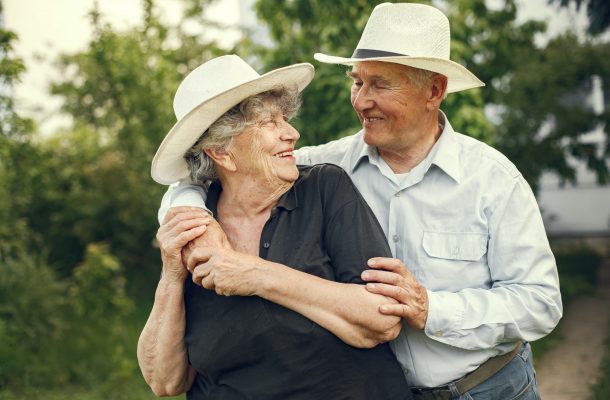Marriage for the modern age

My wife has Alzheimer’s. Each year she regresses more to her teenage years and the times she had with her father. This made me rethink the concept of marriage in general. We tend to think of divorce as a failure of the promises made during the ceremony. Fortunately, I still love my wife and she says she loves me.
However, when the concept of marriage was first conceived, the lifespan of the participants was considerable less than at present. People got married in their mid teens, had children and brought them up to marry in turn. Life expectancy was around thirty years. It was therefore reasonable to assume parental responsibility for around 15 – 20 years.
Now, we are asked to make promises for the next 60 years or more. People change. We continue to mature, branch out, get other interests. Sometimes these lifestyle changes do not accord with those of our partner. Should we pressure everyone to conform with an historical norm?
Surely marriage is a condition required in order to help bring up the children. When they have flown the nest, conditions change and usually the partners rely on each other for solace in mid age and later. By this time, each had adapted to the foibles of the other and can usually relate adequately.
If we accept that many people cannot be expected to make commitments lasting decades, what are the alternatives? In the past, women have been brought up to be submissive and accept either the partner chosen by their parents or assent to the pressures of their boyfriends.
However, now, women are better educated and are realising their own potentials. Many are choosing not to have children, not to get married or to become a single parent. Some people are taking the opportunity to be in a same sex partnership, knowing that they can still have children if wanted either through IVF or adoption.
What are the alternatives? Once the children are independent and if there is no reason to remain together, separation means the purchase of smaller homes which many cannot afford. We cannot expect the authorities to house all divorcees. A possibility could be homes or villages in which folk could live as they wish with others but virtually independent.
The idea of villages is now being considered in NSW as a method of getting people to live and work together as a unit. In cities, people tend to retire into their homes without making much effort to get to know their neighbours. It is for this reason that the Neighbourhood Watch concept was born. The police in Frankston, Victoria found that homes were being robbed because residents were unaware of what their neighbours were doing. Thieves just drew up in removal vans, emptied the house and those around just thought they were valid removalists.
The concept of the University of the Third Age (U3A) was brought into being in France after the Second World War because so many young people had been killed or become incapable to work. The idea was to help those with the knowledge (the elderly) share their knowledge and experiences with the young, emerging workforce.
The idea of an ageing population is anathema to many politicians, but just because a person is old does not mean that he/she is necessarily decrepit. Many inventors, philosophers and researchers are approaching retirement but still producing viable solutions to the world’s problems.
Every week we read the obituary of someone who has died after giving a tremendous amount to those around them. The more we give, the more we get in return. This has been accepted for centuries. If we ignore the apparent faults in others and look for the good points we tend to make more friends and see the advantages of a multinational existence.
Village life has many good points. I grew up in Wongan Hills, Western Australia which was a small country town. Everyone knew everyone else, their good points and problems. Generally speaking no-one judged anyone else; when there was a problem, someone would help solve it.
Everyone knew that someone was on hand to help in any emergency. We have lost a lot of that community spirit. Maybe during this time of lockdown we should at least try to recover the obligation we have for our fellow human.

Alan Stevenson spent four years in the Royal Australian Navy; four years at a seminary in Brisbane and the rest of his life in computers as an operator, programmer and systems analyst. His interests include popular science, travel, philosophy and writing for Open Forum.












